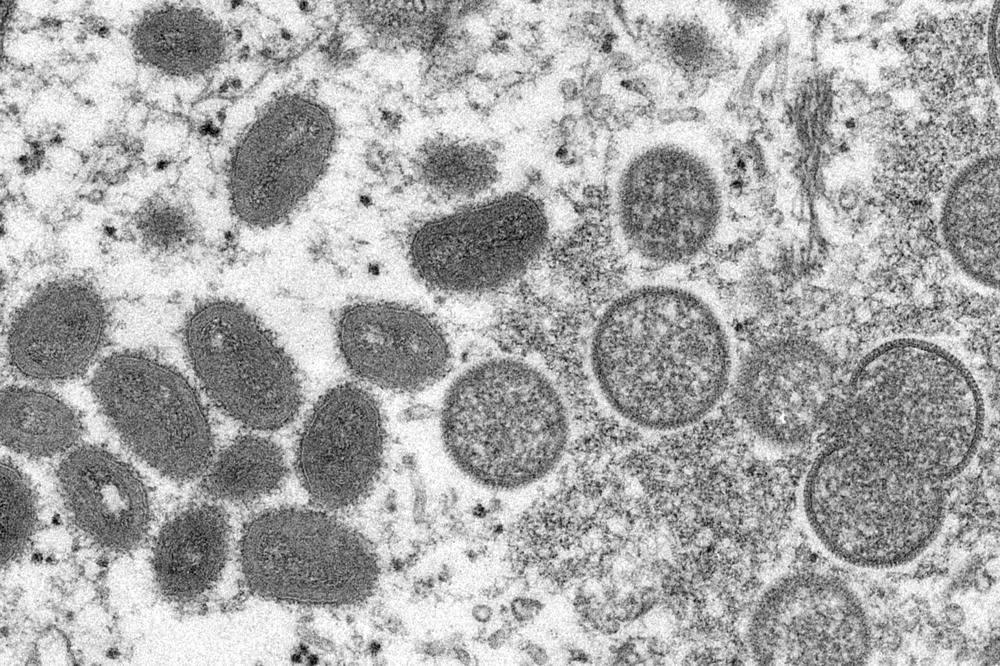The recent detection of Nepal's first case of Monkeypox (Mpox) has sparked grave concerns for public health and safety. The Ministry of Health and Population (MoHP) confirmed the presence of this viral illness in a foreign national, underscoring the pressing need for the government to take immediate measures to contain its further spread. Additionally, it is imperative for the general public to remain vigilant and adopt necessary precautions to avoid infection. Monkeypox is an extremely contagious disease that can be transmitted from person to person and from animals to humans. With cases reported in 111 countries since the global outbreak in 2022-2023, as declared by the World Health Organization, it is crucial that we recognize the severity of the situation. Nepal must act swiftly and effectively to prevent the escalation of this outbreak.
The symptoms of Monkeypox include fever, chills, swollen lymph nodes, exhaustion, muscle aches, headache, respiratory symptoms, and the development of a rash. The incubation period can range from 3 to 17 days, during which an infected person may not exhibit any symptoms. It is imperative for individuals to be aware of these signs and seek immediate medical attention if they suspect Mpox infection. To prevent the spread of Monkeypox, it is crucial to implement a comprehensive strategy. The government should focus on key areas such as surveillance and testing, public awareness campaigns, healthcare infrastructure development, training, and international collaboration. Strengthening surveillance systems and increasing testing capacity are essential for early detection and timely containment of the virus. Rigorous monitoring of potential cases, particularly those with a history of travel to affected regions, can help identify and isolate infected individuals promptly. The government must launch an extensive public awareness campaign to educate citizens about Monkeypox symptoms, transmission routes, and preventive measures. Information dissemination through various channels, such as television, radio, social media, and public service announcements, is vital. Clear and concise instructions on personal hygiene, self-isolation, and reporting suspected cases should be provided to ensure maximum compliance. Furthermore, strengthening healthcare infrastructure, especially in remote areas, is crucial for effective containment and treatment of Monkeypox cases.
Why Is Monkeypox Called Monkeypox; Virus Cases On Rise

Ensuring that medical facilities have adequate resources, including personal protective equipment (PPE) and isolation wards, is essential. Additionally, healthcare professionals should receive specialized training on Mpox diagnosis, treatment, and infection control protocols. While the government plays a pivotal role in managing the outbreak, it is equally important for the general public to take necessary precautions. Individuals should avoid close contact with infected persons, follow good hygiene practices, take personal protective measures, avoid sharing items, and ensure they are vaccinated. Refraining from close, skin-to-skin contact with individuals displaying symptoms similar to Mpox, including rashes, blisters, or scabs, is crucial. This includes avoiding physical contact, such as kissing, hugging, or engaging in sexual activity. Maintaining proper hand hygiene by washing hands frequently with soap and water for at least 20 seconds is equally critical in fighting this pandemic. In cases where soap and water are unavailable, using an alcohol-based hand sanitizer is recommended. Individuals should avoid touching their faces, especially their eyes, nose, and mouth, to prevent potential entry points for the virus.
Wearing masks in public places, particularly when social distancing is not possible, is strongly advised. Carrying tissues or handkerchiefs to cover the mouth and nose while coughing or sneezing is also recommended. It is essential to refrain from sharing eating utensils, cups, and personal items with others. Additionally, individuals should avoid touching or handling bedding, towels, or clothing of an infected person. Lastly, it is crucial for people to stay up to date with routine vaccinations, as overall immunization can strengthen their immune systems against other potential infections. The first case of Monkeypox in Nepal serves as a wake-up call for both the government and the public. Swift and decisive action is imperative to curb the spread of this disease and protect the health and well-being of the population. The government must allocate sufficient resources, both financial and human, to effectively combat the outbreak. Simultaneously, individuals should remain vigilant, adhere to preventive measures, and seek medical help if necessary. By working together, Nepal can overcome this health crisis and ensure the safety of its citizens.








































